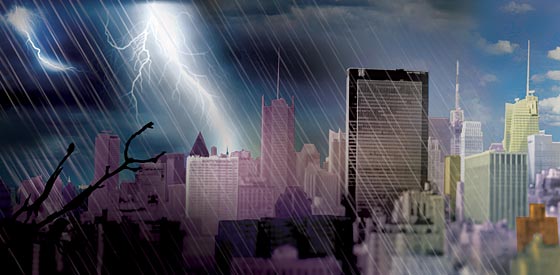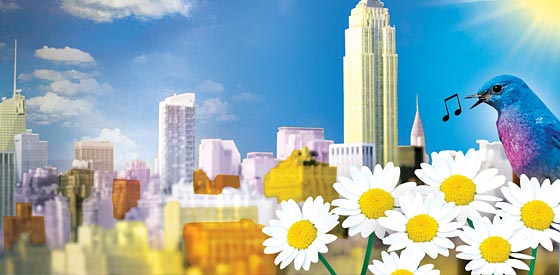
Although the national recession will celebrate its second birthday in December, the city’s own recession will be only a year old. And while the Federal Reserve has declared a “leveling out” of financial problems and is winding down certain programs to prop up Wall Street (which is profitable again), conditions in New York continue to get worse: July’s unemployment was 9.6 percent, up from 9.4 in June. We asked five who know the city’s economy to look ahead.
Those Clouds Still Look Ominous
“There are significant lags between recovery in the economy and fiscal recovery for city and state governments. I lived through it back in the late eighties and early nineties, when we basically went through three years of budget hell. The economy wasn’t as bad then as it is this time. The stimulus has postponed and, in some ways, diminished the initial impact, and that may mean that the damage will be proportionally less. But it’s going to be probably two more years for both the city and the state. The city’s reserves may begin to run a little dry by next year. And the state just doesn’t have the capacity to deal with its problems as well, in part because of the political problems it has. There are not a lot of tools available.”Dall Forsythe
Chairman, Fund for the City of New York; former state budget director; professor, NYU Wagner School of Public Service
The Storm’s Not Over Yet
“We’re expecting the city to lose a total of 250,000 jobs, and we’ve lost about half of that at this point. We are anticipating that we will continue to shed jobs through the second quarter of 2010. We’ve seen the pace of those losses moderate over the last quarter, but we’re still losing jobs. The financial sector is continuing to lose jobs, and because that remains the main driver for the local economy, that means nearly all of the other sectors of the local economy are shedding jobs as well. Credit remains very tight, and there’s a huge glut of unsold apartments, and that’s causing construction employment to plummet.”Ronnie Lowenstein
Director, New York City Independent Budget Office
Comparatively Temperate
“New York City so far has suffered considerably less in this recession than the rest of the U.S. New York usually enters a recession earlier, sustains steeper job losses, and takes longer to emerge, but so far, this has not been the case. Since peaking in August 2008, New York City has lost 110,000 jobs, or 2.9 percent; since its peak in December 2007, the U.S. has lost 6.46 million jobs, or 4.7 percent. While the rate of job losses in New York has slowed in each of the last three quarters, I think it is safe to say that New York will lose 200,000 or more jobs before the recession is over. So, yes, I do think we will have at least five more months of job losses, but the rate of decline will hold steady or even decline. In the end, New York will have suffered less than the U.S.—and again, this is such a rarity.” Barbara Byrne Denham
Chief economist, Eastern Consolidated

Partly Cloudy
“I think New York’s economy may be at least stable, not quite as depressed as you might have thought if, for instance, there hadn’t been any bonuses, or if there were some legislation to limit their amount. Wall Street drives between 20 and 25 percent of New York’s economy. There are fewer workers, but the bonuses seem to be healthy. I think that will keep it propped up. But I wouldn’t think it would grow. That’s reason not to be pessimistic, if not optimistic. I don’t think you’re going to see a lot of resurgence in the investment-banking business for the rest of this year. The economy itself is certainly stabilized. What I’m saying here about Wall Street and New York City is sort of what the Fed just said about the economy: It’s not going down anymore.” Charles R. Geisst
Author of Wall Street: A History and Collateral Damaged: The Marketing of Consumer Debt to America; chair in Global Economics at Manhattan College
Do I See Some Sun?
“Last winter and spring, there was a much greater level of anxiety. Now people have learned how to cope. The city has got a great number of indicators that have been able to continue to do well: higher education, health care, and certainly tourism—the tour buses are jammed. It doesn’t mean there aren’t going to be continued foreclosures, and certainly the housing market is going to have to adapt to the reduction in incomes. Retail stores are gradually learning they have to adapt to a different customer culture. That’s why the stores are promoting their own brands. The strength for many outer-borough neighborhoods is the underground economy, which is still strong. The core assets of the city are quite intact. Let me put it this way: There are still crowds at the Apple Store.” Mitchell Moss
Professor of urban policy and planning, NYU Wagner School of Public Service
Interviews by Jeff VanDam